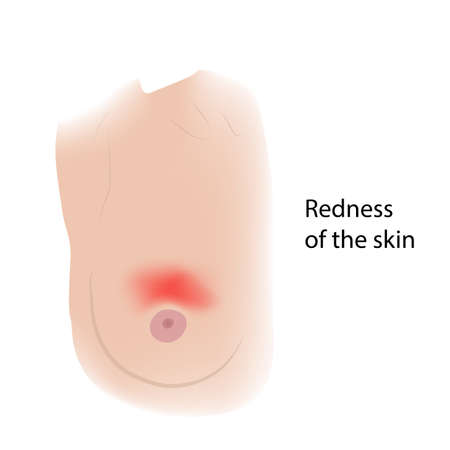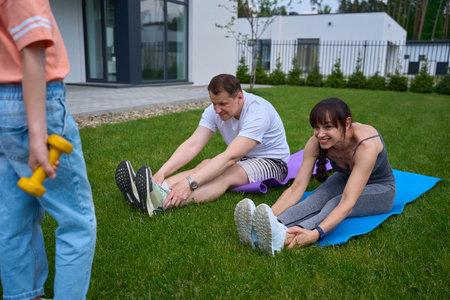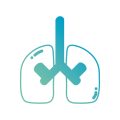Introduction to Cardiac Rehabilitation in the UK
Cardiac rehabilitation stands as a cornerstone of recovery and long-term health for individuals living with heart conditions throughout the United Kingdom. Within the framework of the NHS, cardiac rehabilitation programmes are thoughtfully designed to support patients following events such as myocardial infarction, heart surgery, or a new diagnosis of heart failure. These services are delivered through a coordinated approach that not only addresses physical recovery but also mental well-being, lifestyle modification, and ongoing risk management. The importance of cardiac rehabilitation cannot be overstated: it reduces the likelihood of hospital readmission, improves quality of life, and empowers people to regain confidence in managing their health. In the context of the wider UK healthcare landscape, cardiac rehabilitation is fully integrated into both acute care settings and community-based services, ensuring continuity and accessibility for patients across England, Scotland, Wales, and Northern Ireland. This holistic approach draws upon a rich tradition within the NHS of multidisciplinary teamwork—bringing together diverse professionals who work collaboratively to provide tailored support that meets each person’s unique needs during their journey towards better heart health.
2. Core Members of the Multidisciplinary Team
In the UK, cardiac rehabilitation is steered by a collaborative team of healthcare professionals, each bringing unique expertise to support patients on their recovery journey. The heart of this multidisciplinary approach lies in the seamless integration of core team members—cardiac nurses, physiotherapists, and cardiologists—whose roles are both distinct and complementary.
Cardiac Nurses
Cardiac nurses serve as patient advocates and coordinators throughout the rehabilitation process. Their responsibilities often include conducting initial assessments, providing ongoing education on heart health, monitoring progress, and offering emotional support to both patients and their families. Their presence ensures continuity of care and helps bridge communication between different specialists.
Physiotherapists
Physiotherapists play a vital role in designing and delivering tailored exercise programmes. They assess physical capabilities, set realistic goals with patients, and guide safe participation in physical activities. Their expertise supports gradual improvement in fitness while minimising risk, thereby fostering confidence and independence in everyday life.
Cardiologists
Cardiologists oversee the medical aspects of cardiac rehabilitation. They provide clinical guidance regarding diagnosis, treatment plans, medication management, and the monitoring of cardiovascular health. Their input is crucial for adjusting interventions to suit individual needs and ensuring that all aspects of care align with best practice guidelines.
Summary Table: Core Roles in Cardiac Rehabilitation
| Role | Main Responsibilities |
|---|---|
| Cardiac Nurse | Assessment, education, emotional support, coordination |
| Physiotherapist | Exercise prescription, physical assessment, goal setting |
| Cardiologist | Medical oversight, diagnostics, medication management |
Together, these professionals form the backbone of cardiac rehabilitation within the UK healthcare system. Their collaborative efforts create a holistic framework that not only addresses the medical needs of patients but also nurtures their physical and emotional wellbeing throughout recovery.

3. Specialist Support Roles and Allied Health Professionals
Within the UK cardiac rehabilitation landscape, the role of allied health professionals and specialist support staff is essential for ensuring truly holistic care. These professionals bring a breadth of expertise, offering nuanced and patient-centred interventions that complement the work of core medical staff.
Occupational Therapists: Enabling Everyday Life
Occupational therapists (OTs) play a crucial role in helping individuals reclaim their independence following cardiac events. By focusing on practical daily activities, OTs assess each person’s unique challenges—whether it’s returning to work, managing fatigue, or adapting the home environment. Through tailored strategies, they empower patients to build confidence and achieve meaningful goals, always respecting individual pace and preferences.
Dietitians: Nurturing Recovery Through Nutrition
Dietitians within the multidisciplinary team provide evidence-based dietary advice that aligns with UK nutritional guidelines. They work closely with patients to develop personalised meal plans that support heart health, manage co-morbidities like diabetes or high cholesterol, and accommodate cultural food preferences. Their compassionate approach ensures dietary changes are realistic, sustainable, and sensitive to both physical and emotional needs.
Psychologists: Supporting Emotional Wellbeing
The psychological impact of a cardiac event can be profound. Psychologists offer specialised assessment and therapeutic interventions to address anxiety, depression, and adjustment difficulties commonly experienced during recovery. By fostering a safe space for sharing fears and building resilience, they help patients—and often their families—navigate the emotional journey towards wellbeing.
Other Allied Health Professionals: A Collaborative Network
The wider team may include physiotherapists guiding safe physical activity progression, pharmacists optimising medication regimes, and speech & language therapists supporting those affected by communication or swallowing difficulties. Each brings a distinct perspective, ensuring care is not only comprehensive but also deeply attentive to every aspect of a patient’s life.
Together: Enhancing Holistic Rehabilitation
This collaborative network reflects the values at the heart of the UK healthcare system—compassionate partnership, respect for individuality, and dedication to long-term wellbeing. By drawing on the strengths of specialist support roles and allied health professionals, cardiac rehabilitation becomes a truly person-centred journey of recovery.
4. Collaboration, Communication, and Patient-Centred Care
In the context of cardiac rehabilitation within the UK healthcare system, integrated teamwork and effective communication are fundamental to delivering genuinely patient-centred care. The British approach places a strong emphasis on multidisciplinary collaboration, where each professional contributes their unique expertise while respecting cultural sensitivities and individual patient needs.
The heart of British cardiac rehabilitation lies in regular multidisciplinary team (MDT) meetings. During these sessions, cardiologists, nurses, physiotherapists, occupational therapists, dietitians, psychologists, and social workers come together to discuss patient progress and tailor interventions. Open channels of communication—both formal and informal—ensure that every voice is heard and considered when developing care plans. This collaborative spirit fosters trust among team members and with patients themselves, promoting better health outcomes.
Effective communication extends beyond the MDT; it includes engaging patients and their families in shared decision-making. British practice recognises the value of listening attentively to patients’ experiences, preferences, and backgrounds. Sensitivity to diverse cultural beliefs about illness, recovery, and dietary practices is carefully woven into every interaction. Such an approach not only builds rapport but also empowers individuals to take an active role in their own recovery journey.
Key Elements of Teamwork and Communication in UK Cardiac Rehabilitation
| Aspect | Implementation in UK Practice | Benefit for Patients |
|---|---|---|
| Regular MDT Meetings | Weekly or biweekly reviews involving all relevant professionals | Ensures coordinated care and timely adjustments to treatment plans |
| Open Communication Channels | Email updates, shared electronic records, direct messaging systems | Reduces misunderstandings and information gaps between professionals |
| Cultural Sensitivity Training | Ongoing staff education on diversity and inclusion issues | Makes rehabilitation accessible and respectful for all communities |
| Patient Involvement in Decision-Making | Use of care planning tools and informed consent discussions | Enhances motivation and adherence to rehabilitation programmes |
| Family Engagement Initiatives | Workshops and family meetings as part of the rehab process | Strengthens support networks around the patient |
The UK’s commitment to collaboration and communication ensures that cardiac rehabilitation is not only clinically effective but also emotionally supportive. By upholding principles of partnership, respect, and inclusivity, British teams provide care that truly centres on the whole person—helping individuals regain confidence and independence at their own pace.
5. The Role of Primary Care and Community Support
Cardiac rehabilitation in the UK extends well beyond the hospital setting, with primary care and community support playing pivotal roles in ensuring a holistic and continuous approach to patient recovery. General Practitioners (GPs) serve as the cornerstone of ongoing care, offering regular check-ups, medication reviews, and tailored lifestyle advice that reflect each patient’s unique medical history and social circumstances. Their close relationships with patients enable them to notice subtle changes in health status, address concerns promptly, and coordinate referrals to specialist services when necessary.
The Integral Contribution of Community Nurses
Community nurses work hand-in-hand with GPs, providing essential follow-up care in patients’ homes or local clinics. They offer support with medication management, wound care, and monitoring vital signs, helping patients regain confidence and independence after a cardiac event. By fostering open communication and encouraging self-management skills, community nurses empower individuals to take an active role in their recovery journey.
The Vital Role of Charities
Charitable organisations such as the British Heart Foundation are invaluable within the UK healthcare landscape. These charities deliver practical resources, helplines, and educational workshops designed to help patients understand their condition and make informed choices. Many also offer emotional support services—such as counselling or peer mentoring—which gently address the psychological impact of heart disease for both patients and their families.
Local Support Groups: Building Community Resilience
Local support groups provide a safe space for individuals to share experiences, challenges, and successes with others who truly understand what they are going through. Facilitated by volunteers or healthcare professionals, these groups foster a sense of belonging and reduce feelings of isolation. Regular meetings often include guest speakers—such as dietitians or physiotherapists—who give practical advice tailored to everyday living in the UK context.
Together, GPs, community nurses, charities, and local support groups form a compassionate network that bridges the gap between hospital-based rehabilitation and daily life. By embracing this multidisciplinary community approach, cardiac rehabilitation becomes a deeply personalised process—one that is responsive to both clinical needs and the unique social fabric of each individual’s life across the UK.
6. Challenges and Developments in the UK System
The landscape of cardiac rehabilitation within the United Kingdom is shaped by both enduring challenges and dynamic developments that influence multidisciplinary team (MDT) roles. While the value of collaborative care is widely recognised, there are several obstacles that teams encounter on a daily basis. One persistent issue is the variability in access to comprehensive cardiac rehabilitation services across different regions, with some communities experiencing limited resources or longer waiting times. This can impact how effectively MDTs deliver holistic care and support continuity for patients.
Current Obstacles Facing Multidisciplinary Teams
Staffing shortages, particularly among specialist nurses, physiotherapists, and psychological support providers, can stretch existing teams and lead to increased workloads. Additionally, communication barriers between primary, secondary, and community care settings sometimes hinder seamless patient transitions. There may also be inconsistencies in training opportunities for team members, resulting in varying levels of confidence and expertise across MDTs.
Evolving Practices in Cardiac Rehabilitation
Despite these challenges, the UK healthcare system has demonstrated adaptability through innovative practices. The integration of digital health tools—such as remote monitoring platforms and virtual consultations—has expanded access to rehabilitation programmes and fostered closer collaboration within MDTs. Patient-centred approaches are gaining momentum, with an increasing emphasis on shared decision-making and culturally sensitive care tailored to individual needs.
Looking Ahead: Future Directions
The future of multidisciplinary teamwork in cardiac rehabilitation rests on continued investment in workforce development and technology. Ongoing training initiatives aim to empower all professionals involved, from exercise specialists to occupational therapists, ensuring they can confidently address evolving patient needs. Efforts are also being made to standardise pathways across the UK, reducing regional disparities and enhancing service equity. By nurturing compassionate teamwork and embracing innovation, the UK’s MDTs remain committed to supporting every cardiac rehabilitation journey with warmth, expertise, and hope for better outcomes.


